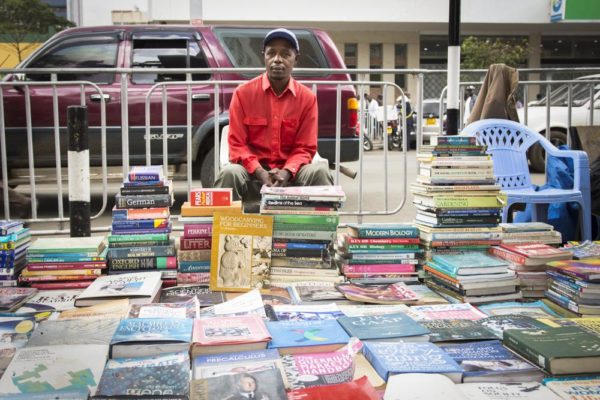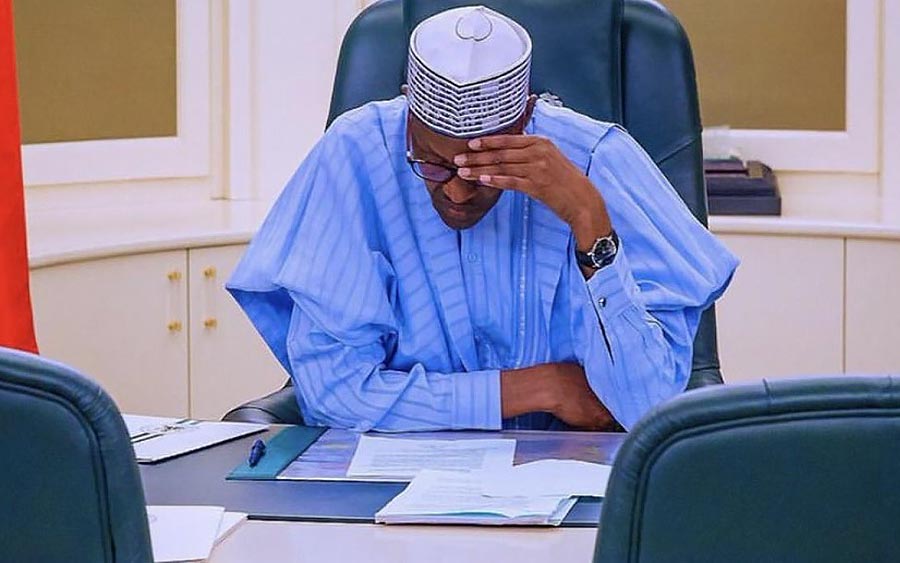Biola Alabi, founder and Managing Partner of Biola Alabi Media, the production company behind 2017’s “Banana Island Ghost” and this year’s “Lara and the beat,” was a Keynote speaker at the 22nd African Securities Exchange Association (ASEA) Conference which took place at the Oriental Hotel in Lagos.
After addressing the audience about the need for more investment in Nigeria’s entertainment industry, Mrs Alabi spoke to Nairametrics about a number of pressing issues facing the film industry in Nigeria.
It’s the end of the year and we already know when a number of 2019 Hollywood releases will be out based on their system of making release schedules available in advance. When do you think we will have that kind of organisation with Nollywood releases?
Well there’s a lot of stuff coming out in December and there’s also a lot of brands that are building themselves up to be a December-release type of Producer. So you take a look at a company like Ebony Life films, they’re very much a December-release organisation. They’ve been advertising their December releases since about six months ago.
I do, however, agree with you that there could be more advanced notice across our movie industry. I think the problem in Nigeria is that there is so much noise in the environment that you have to be careful with when you make an announcement, how captive and available your audience is, and so on. So even though you have these big Hollywood blockbusters there’s still a lot of other films to be released that we haven’t heard about. It is difficult to compete with some of the Marketing budgets of the big film studios.
With regard to box office transparency, in Hollywood, we know how much a movie makes on its opening weekend plus there are weekly updates during the theatrical run. Do you think this is something that can happen in Nigeria where we have more transparency into how much our films are making from week to week?
Yes and no. I definitely think there should be more transparency but because a lot of funding for our movies is coming from private sources, it is sort of like asking for public information from a private company.
The requirements for a publicly listed company are different from a private company and that’s the challenge we have in Nollywood. As long as you have a mom and dad funding a film, the filmmaker gets to decide what financial information gets released. So the more investors that get involved, the more transparency you’ll have.
Also, there has to be a culture of transparency, there has to be a culture of accepting that some films are going to fail and some films are not going to connect. There also has to be more education on big films, mid-level films, and small films. Until we have that kind of education in our industry, I think it will be hard to have transparency because many don’t understand how to categorise those box office numbers or how to process them correctly.
One thing that’s improved tremendously is reporting to investors that fund Nollywood films. For us at Biola Alabi Media, we’re very structured in how we provide our financial performance to our investors. We make sure we give our investors quarterly reports and regular updates whether it is good news or bad. Now imagine how much more transparent we would have to be if we had times ten of that funding, so I think more investment will increase transparency.
You talked a lot about funding in your keynote address to the audience here of how Nigeria’s film industry needs more investment. Were you encouraged by Netflix investing in “Lionheart,” the Genevieve Nnaji movie and do you think that can pave the way for more funding for Nollywood films in the future?
I think it is encouraging and I think it is a very good sign that the rest of the world is interested in Nollywood content. This also told me that local investors will miss out on this big opportunity if they don’t pay more attention. Netflix has a production budget of $8 billion. That’s just for production of original content. That’s not talking about acquisitions, or technology because remember, they’re a technology firm. We’re talking about $8 billion that is just for producing original content. Our entire film industry in Nigeria is roughly $1 million. We’re talking about just one company here and not even including others in the west. So for me, that’s concerning because if we are not investing in our own stories, our own stories will then be dictated to us by other people.
However, just as a Farmer wants to farm, a Producer wants to produce, a Writer wants to write, a Director wants to direct, so those talents will go where the funding is. This is why I think it is important that we have some semblance of a hybrid model.
We are at a Securities Exchange conference, and there are a number of publicly listed film studios like Warner Bros and Fox overseas. When do you think we can ever see Nollywood studios like a Biola Alabi Media for instance being listed on our stock exchange?
I hope we can see that one day. We need to have a pipeline for that and that is what I addressed in my speech. We need engagement from the investment community and it needs to be consistent engagement. This conference is a good platform to engage the investment community but it has to go beyond that. The conversation has to continue after the conference is over.
Let’s have a 10 to 15-year runway. Some of this will include getting more money and having some mergers and acquisitions. Right now the industry is too fragmented. We need bigger players to get scale.
Is Biola Alabi Media into online streaming of content or are you looking at that as an option down the line?
One of the things we focused on was building the ecosystem and producing more content. When it comes to distribution which is the streaming model, we’re not really interested in building the technology and I’ll tell you why; for the people that build that technology, for some of them, there will never be competition for that technology, and those people are some of the big players that you’ve already mentioned. You can’t match the investment that some of these streaming companies have. Some of them are just going to be your usual big technology companies, they’re going to be the big streamers of the future. The biggest thing is who is going to own the content that is going to define that future, not necessarily the pipes. So we have decided to focus on the content and not the pipes.
Banana Island Ghost was a very interesting, off-the-wall project. Can you give us some insight into what you have coming for 2019?
For 2018 we also had “Lara and the beat” which was also off-the-wall and different from your typical Nollywood film. What we are trying to do is show the range and diversity of Nigerians. It’s always been part of my counter-narrative that we show nuance in Nigerian films and that we do different things.
So for me, I am really interested in stories that are different even if it is Comedy which is a popular genre. So with “Lara and the beat” we wanted to do something different and showcase our music industry. We wanted to tell a story about some of the biggest challenges we have in Nigeria which is about wealth preservation and wealth transfer and actually building companies.
That’s what I am trying to do, I’m trying to build a company and what I continue to see are the challenges that people face while trying to do this and that is what we showcased in “Lara and the beat.” The film is still on a good run and we’re already working on another film for next year.
I can’t reveal the name but it’s about two women who are of different age groups and are trying to understand how their industry will transform in the 21st century. It’s a very traditional industry for the modern day. So once again, very off-the-wall, very different.
Do you think we will ever see a Nollywood film about Nigeria’s Capital Market and are you thinking of making one?
Of course. We are in talks with people and we are exploring a film. There are some interesting things that have happened on our stock exchange and we want to tell that story and put it out there.






















